8 Things You Might Not Know About Bulgaria
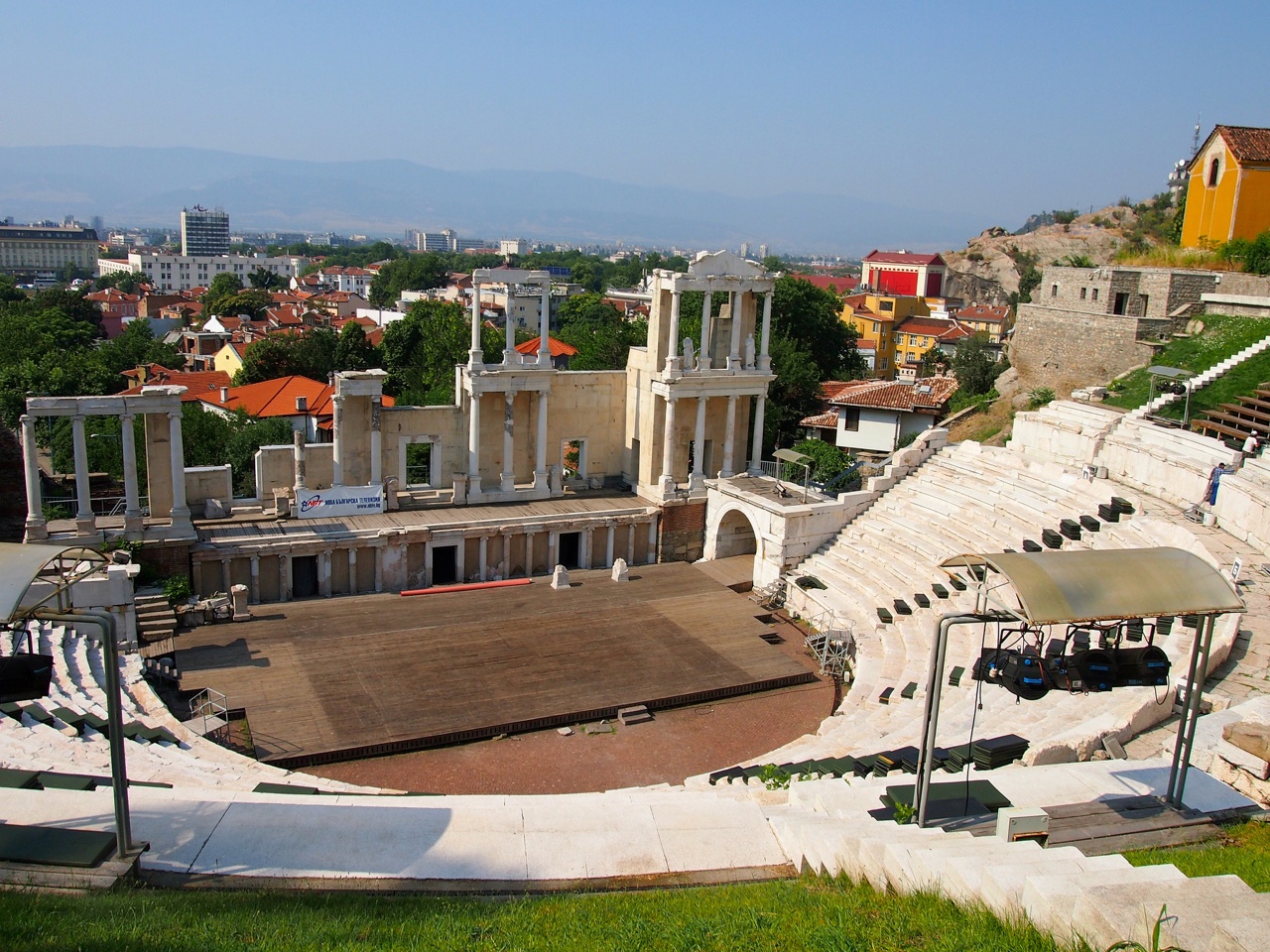
Chances are, Bulgaria isn’t a country that’s high up on your travel list. It was fairly high on mine before this summer simply because I've had a slight obsession with Eastern Europe for a few years now. But I realize most people aren't like me.
Part of the reason that most people have never considered traveling to this somewhat-obscure country probably lies in the fact that nobody seems to know very much about Bulgaria. I didn't even know much about it before visiting, to be honest. But I assure you that it's much more interesting than you probably expect.
Read these fun facts about Bulgaria, and see if you aren’t a bit intrigued!
8 Things You Might Not Know About Bulgaria
1. Nodding for no
Bulgaria is one of only a handful of countries in the world where a shake of the head means “yes” and a nod means “no.” This can of course be confusing when you’re trying to converse through gestures with a local who doesn’t speak English, but thankfully most of them realize you don’t have a clue.
Just remember that “da” means yes, and try to ignore the seemingly incongruous gesture.
2. Bulgarian Bagpipes
If you thought Scotland was the only place known for its bagpipes… think again! Bulgaria (along with a handful of other Balkan/Eastern European countries) also has a bagpipe as a traditional instrument. Called gaida, Bulgarian bagpipes are usually made from goat hide, and don’t look quite as complicated as their Scottish counterparts.
3. Cyrillic alphabet
The Cyrillic alphabet – which today is used in Russia and throughout the Balkans and other Slavic nations – was invented by two monks during the First Bulgarian Empire in the 10th century. These two monks/saints (Cyril and Methodius) are celebrated each year in Bulgaria (and also in other Slavic countries around the world) with a feast day/public holiday in May.
4. Bulgaria has Roman history
Bulgaria’s history stretches back thousands of years – further back than communism, the Ottomans, and even the Romans. The ancient Roman influence on Bulgaria can still be found in many of the country's cities, though. You’ll find Roman baths in Varna, ruins in Sofia, and a mostly-in-tact Roman theater in Plovdiv (that is still used today for plays and concerts!).
5. Bulgaria is famous for roses
Bulgaria grows a lot of roses. And I mean a LOT of roses. In fact, the roses grown in Bulgaria’s “Rose Valley” produce most (70-85%) of the world’s rose oil – a component in most perfumes.
If you want a very “Bulgarian” souvenir to take home, be sure to pick up some rose oil, which can be found for sale just about everywhere.
6. Bulgaria has lots of mountains
Believe it or not, Bulgaria is actually a fairly mountainous country. It has two major ranges – the Balkan Mountains and the Rhodope Mountains – and a few smaller ranges, including the Rila and Pirin mountains. Because of all these mountains, Bulgarian towns like Bansko have become very popular for winter sports.
7. Delicious cheese
Forget France or Italy; if you want great cheese, head to Bulgaria. There are so many varieties of cheese on offer here, with some of the best being the ubiquitous “white” cheese – usually goat or sheep’s cheese.
Some Bulgarians will actually argue that THEY “invented” feta cheese, and that the Greeks stole it from them. Try a traditional Shopska salad (tomato, cucumber, onion, pepper, and white cheese), and you’ll definitely be reminded of a Greek salad.
8. Martenitsi
On the first day of March each year, Bulgarians exchange red-and-white woven bracelets with one another. They wear these Martenitsi bracelets throughout the month, until they see a stork or a blooming tree. Then, the bracelets are tied to trees as a way of welcoming springtime. This is a holiday of sorts, called Baba Marta (“Grandmother March”), and celebrates the passing of winter.
I was in Bulgaria in July, and there were still Martenitsi tied to tree branches.
And see, I’ll bet you never knew any of this about this Balkan country!
Who's ready to go to Bulgaria now?

Amanda Williams is the award-winning blogger behind A Dangerous Business Travel Blog. She has traveled to more than 60 countries on 6 continents from her home base in Ohio, specializing in experiential and thoughtful travel through the US, Europe, and rest of the world. Amanda only shares tips based on her personal experiences and places she's actually traveled!

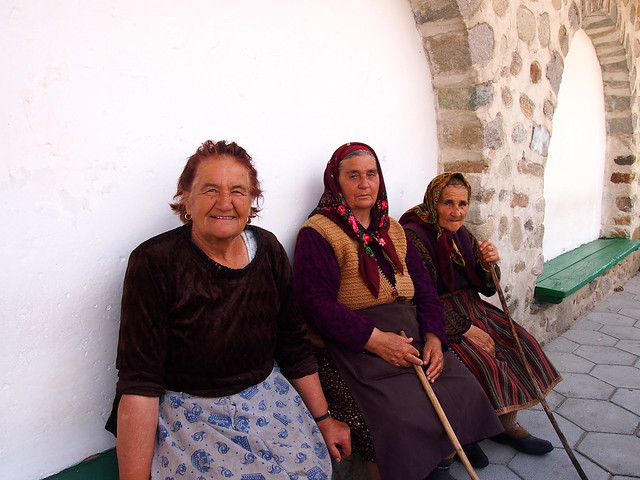
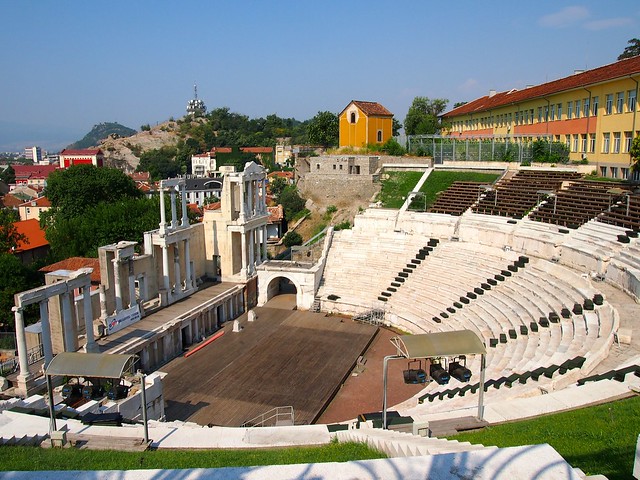
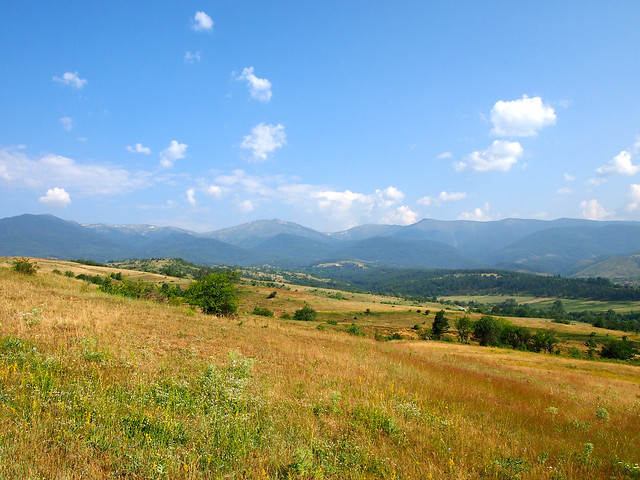
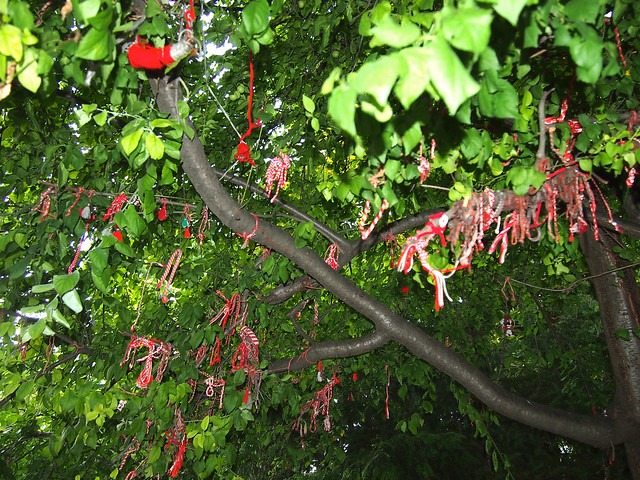









Cyril and Methodius are Byzantine monks of Slavic origin. Before being monk Cyril was a scholar in the famous Bizantine Magnaura school under the name of Constantine Philosopher. They have created the so-called Slavic Glagolitic alphabet https://en.wikipedia.org/wiki/Glagolitic_script.
The graphical form of the modern Cyrillic alphabet has been created in Bulgaria in the so-called Preslav school by the pupils of Cyril and Methodius, who have been expelled from Moravia by the German priests and welcomed by knyaz (prince) Boris-Michael I, who had just adopted the Orthodox Christianity to Bulgarians in the 9th century.
I was born in Vidin in Bulgaria but now I live in Brisbane, Australia. A piece of my heart will always remain in Bulgaria. I visit relatives with my immediate family every 2 years, and leaving is the worst feeling. The food and yoghurt in particular is out of this world!
Hey, Amanda, great post, still very true after a couple of years 🙂
In case someone else is still trying to decide, they should definitely pack their bags and head to Bulgaria, here are a few more reasons why: http://ntripping.com/5-reasons-to-visit-bulgaria-right-now/
Cheers, N.
Actually the two monks that created the Cyrillic Alphabet were in fact Macedonian. They were NOT Bulgarian.
Everything is Macedonian… Even Batman I heard
Nice summary! I love Bulgaria! Went there on a student exchange in 2003 and had a brilliant 2 months living and working with lovely Bulgarian students in Plovdiv! Isn’t a great city? So cool to see you went there too! I remember my first encounter with the confusing head shake/nod too but eventually got the hang of it after about 2 weeks – it just feels so strange saying yes by shaking your head doesn’t it!
Yes I really loved Plovdiv! Must have been a fun place to spend a couple of months!